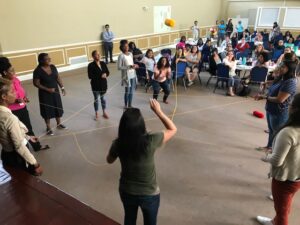
Whether the opening of schools is just around the corner, or maybe next semester, or maybe even next year, one can be assured that there will be some concerns on the minds of all those involved: students, teachers, administrators, and parents. Will everyone be safe? What, in general, can be expected upon everyone’s return?
Unfortunately, with children not having been in school for the better part of an entire spring semester, and without knowing exactly what their experiences of the lockdown were, it is difficult to know what to expect. A “one size fits all” approach to determining how children will return to school is unwise. Children are like adults, in that they, too, have their own individual ways of responding to both positive and negative events in their lives. In other words, why are some children nonplussed by things like school-based lockdown and active shooter drills, while others find those experiences to be much more frightening? And why do some children collapse under the pressure of the week-long high stakes testing each spring, whereas others tolerate it without any major reactions?
There really are three different sets of questions that must be answered. First, how close were they to the virus itself, both physically and emotionally, during the lockdown? Were they close to someone who was sick or who died? How attentive were they to online lessons? What types of routine/schedule were they expected to follow? Were they in lockdown in a supportive home environment or an abusive one from which there was no escape?
Second, how did they tend to react in the past to other unexpected turns of events in their lives? Did they cope with them well enough to avoid major adjustment problems, or was coping without significant assistance a problem for them? Was the lockdown just another of many traumatic events in their lives? Finally, what did they think of the virus information and of the lockdown itself? Did they consider it a disaster or just a bump in the road that had to be tolerated? Young children in particular take a cue from their caregivers when something unexpected or upsetting occurs to determine how to react to it. Therefore, it would be good to know how their caregivers coped with the lockdown: was it front and center of mealtime discussions each night? Was there a sense of doom expressed?
Having the answers to some of these questions would provide information that might tip off teachers and principals as to the level of support students might need upon their return. However, in the absence of this information, and in the interest of true prevention, there are several things which should be reassuring to all returning folks. Modeling a sense of “calm” for students is essential; it sends the message that this new routine can work. Schools also should guarantee that they adhere to all federal, state, and local policies in seeing to everyone’s physical and psychological safety. Physical safety, of course, refers to those measures related to the halting of the virus spread: the requisite masks, social distancing, and access to hand sanitizers, etc. These measures should be made very clear to all who return. Psychological safety involves creating a positive and welcoming school climate and providing access to mental health services for those individuals who will have trouble returning to a school building. The manner in which schools plan to insure such things should be repeated multiple times so that it becomes second nature to children. (ChildWIN has resources, tools and training for calming children, social distancing, understanding trauma and more.)
Since routines are reassuring to children, teachers should make very clear to them what the new classroom and school-wide arrangements are. Although eventually getting back on track to an instructional routine is important, the initial focus should be on relationship-building among teachers and students, with academic expectations placed on the “back burner” for a while. Allowing students to discuss the whole lockdown experience also can be helpful for students to hear of the commonalities of their experiences with their peers. Having teachers answer questions in a straightforward and honest manner also can mitigate against some of the anxiety caused by misinformation. It is when such discussions elicit serious emotions, however, that those students must be allowed access to a school mental health professional (school psychologist, social worker, counselor, member of the school’s crisis team) to help them work through the trauma. In fact, before classroom discussions about these issues are held, teachers should make sure that these support personnel are available.
Approximately 80% of children will respond well to the prevention practices mentioned here without any significant negative reactions. Another 15% will require more than just these classroom-based interventions, like regular visits to one of the school’s support personnel. A much smaller number of students (5%) will require significant mental health intervention. Obsessive ruminating about the virus, negative talking about themselves and their grim future, and an inability to settle down are some of the indicators that referrals to other community resources outside school will be necessary.
Joseph E. Colford, Ph.D., NJ Licensed Psychologist
Professor Emeritus, Georgian Court University




